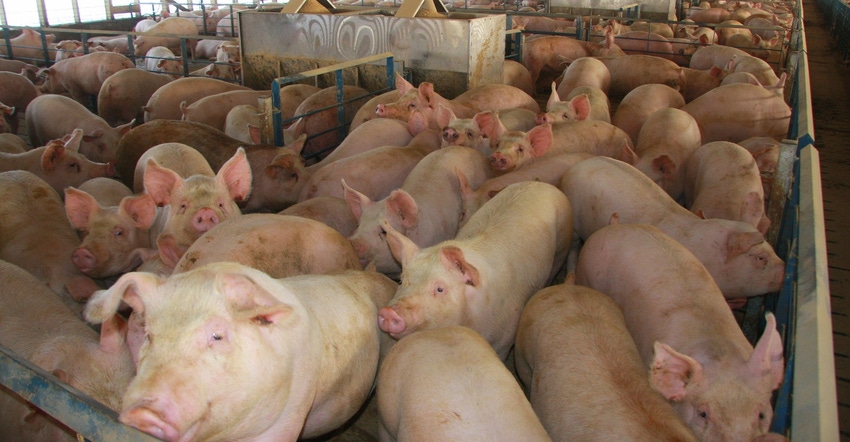
The National Pork Producers Council and American Farm Bureau Federation filed their last reply brief in a years-long court challenge ending at the U.S. Supreme Court to California’s Proposition 12, the ballot initiative which mandates space requirements for gestating sows not only within the state of California, but also any pork sold to the state. The industry now awaits its official day before the Supreme Court with the October 11 date set for oral arguments, and a likely decision by early 2023.
“This date is an impactful date not only to the U.S. pork industry, but also to states across the country as it sets the precedent for states to regulate or not regulate what goes on outside their borders. We feel this is an unconstitutional overreach that will impact future generations of pig farmers and pork production along with consumer impacts,” explains Terry Wolters, a pork producer from Minnesota and NPPC president, during a roundtable event with media on September 15.
Wolters explains this case is top of mind for many producers. NPPC supports producers’ ability to make decisions in the best interest of their animals, which Prop 12 limits, as well as has the potential to impact and disrupt the supply chain, increase food costs to consumers and threaten animal health and farm sustainability.
Michael Formica, NPPC assistant vice president & general counsel, says NPPC filed this court challenge in late 2019 after Californian voters approved the initiative in 2018. He says they believe the law is unconstitutional and violates the Dormant Commerce Clause.
“It reaches thousands of miles outside of the state of California and imposes very prescriptive standards on farmers who had no contact with the state of California. It will force them to incur millions of dollars in renovations to their farms, to have to host inspectors from the state of California to their farm to come visit them. And at the same time, while being in the name of improving animal welfare ironically, the bill significantly decreases the welfare and the health and safety of those animals that is in the care of the farmer,” Formica says.
Scott Hays, a fifth-generation pig farmer from Northeast Missouri, says his family has spent well over a century raising pigs on the same farm. “We’re very frustrated about the animal welfare part of this thing,” he says. “We feel like we’re going backwards on animal care.”
Formica notes it takes about 750,000 to 1 million sows to satisfy the California pork market, which is estimated at 15% of the total U.S. pork consumption. According to USDA., there are only 8,000 sows in the state of California, and the vast majority of those are show pigs, Formica explains.
Travis Cushman, deputy general counsel at AFBF, adds that the Farm Bureau is concerned about the implications for not just pork producers, but farmers everywhere in all types of farming activities. “We obviously share California’s goal of ensuring animals are well cared for, unfortunately, this does not let farmers have a say in that. And for me, what this really comes down to is a small farmer who will be unable to spend millions of dollars to renovate his operation to satisfy a law mistake elsewhere,” Cushman says.
Wolters shares that the arbitrary housing standards required under Prop 12 would require 24 square feet per sow, or an expansion of 20% of his current facilities that is “unscientific and not documented” on the benefits. This will bring an added cost of an estimated $3,500 per sow space being passed back to producers to comply.
Formica explains Ohio and Michigan have regulations and statutes establishing requirements on sow housing, but producers and veterinarians were part of establishing those standards to account for animal welfare concerns. However, those standards which also were adopted with the input of the Humane Society of the U.S. who pushed for California’s Prop 12, would not be compliant with the new California space requirements.
"Ironically, California's Department of Food and Agriculture also announced [September 8] it finally completed the Proposition 12 implementation rules, more than three years after the original statutory deadline. This delay unnecessarily exacerbated pork supply chain disruptions and now creates significant concerns for farmers that these arbitrary regulations put the nation's pig herd at risk of disease. Any farmers raising pigs that provide pork products to the California market must register and will be required to have California agents inspect their farms, which will create serious biosecurity threats across the country,” Wolters adds.
About the Author(s)
You May Also Like






